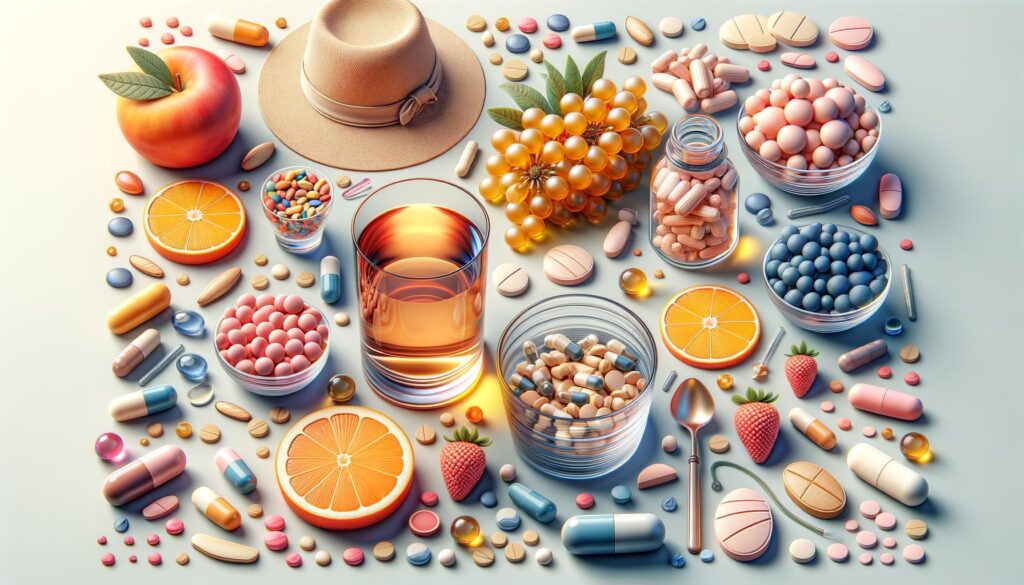Essential Vitamins for a Healthy Lifestyle in Older Women

The Importance of Vitamin D
Vitamin D is essential for several bodily functions, particularly for maintaining bone health and ensuring efficient calcium absorption. It plays a crucial role in preventing osteoporosis, a condition more prevalent in older women. Regular exposure to sunlight can help the body produce vitamin D, but for individuals who spend a lot of time indoors or live in regions with limited sunlight, supplementation might be necessary.
Ensuring sufficient intake of vitamin D can offer several benefits:
- Strengthen bones and teeth, reducing the risk of fractures.
- Support immune system health to fend off illnesses.
- Enhance mood regulation, potentially reducing the risk of depression.
Consulting with a healthcare provider can help determine appropriate dosages and whether supplements are needed.
Calcium for Bone Health
Calcium is another vital mineral that works hand in hand with vitamin D to support bone density. As women age, they are more susceptible to bone density loss, making calcium intake crucial for preventing brittleness and fractures.
Sources of calcium include:
- Dairy products such as milk, cheese, and yogurt.
- Fortified plant-based milk alternatives like almond or soy milk.
- Leafy green vegetables such as kale and spinach.
Supplementing with calcium might be advisable for those who struggle to meet their dietary needs through food alone. However, it’s important to avoid excessive dosage, as too much calcium can lead to other health issues.
Vitamin B12 for Energy and Cognition
Vitamin B12 is integral for maintaining energy levels and cognitive function. It aids in the formation of red blood cells and helps in neurological functioning. Older women are at a higher risk of B12 deficiency due to age-related changes in absorption.
Natural sources of vitamin B12 include:
- Animal-based foods such as fish, meat, eggs, and dairy.
- Fortified breakfast cereals which provide an alternative for vegetarians or vegans.
For some, a daily B12 supplement could be needed, especially for those on a strict vegetarian or vegan diet where natural sources are limited.
Iron for Blood Health
Iron is essential for the production of hemoglobin, a component of red blood cells that carries oxygen throughout the body. Older women may experience lower iron levels, leading to fatigue and anemia.
Good dietary sources of iron include:
- Red meat, poultry, and fish.
- Beans, lentils, and chickpeas.
- Iron-fortified cereals and bread.
While iron supplements are available, it’s important to take them under the guidance of a healthcare professional to avoid overconsumption, which can lead to other health complications.
Omega-3 Fatty Acids for Heart and Brain Health
Omega-3 fatty acids, while not a vitamin, play a significant role in maintaining cardiovascular and cognitive health. These essential fats help reduce inflammation, lower the risk of heart disease, and support brain function.
Primary sources of omega-3s include:
- Fatty fish such as salmon, mackerel, and sardines.
- Chia seeds and flaxseeds.
- Walnuts and soybeans.
Fish oil supplements can be an alternative for those who do not consume fish regularly. Before starting any supplement, consulting a healthcare provider is advised to ensure it complements one’s health status and needs.
Conclusion
For older women, maintaining a balanced intake of vitamins and minerals is pivotal in supporting overall health and preventing age-related ailments. Working closely with healthcare providers to assess individual needs and dietary habits can ensure that the necessary steps are taken to fill nutrient gaps. Prioritizing these essential vitamins and nutrients contributes to a healthier lifestyle and improved quality of life in later years.
